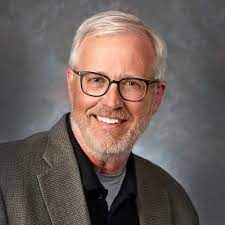When I was still a relatively young professor, I played on the seminary basketball team. In the second game of the season, I planted my left foot and made a hard cut toward the basket. My foot slipped on a wet spot on the floor, and I collapsed in pain. I limped off the court and into the classroom the next day.
I thought the pain would go away, but it got worse. My left knee swelled to twice its normal size, and I reluctantly made an appointment to see a doctor. After having administered various tests, he came to me with the results. In the tone of a disapproving father, he said: “What did you think you were doing, playing basketball with students twenty years younger than you? Don’t you know that as you grow older your ligaments harden? When you put that kind of strain on them, they don’t stretch, they snap. You’ve lost the anterior cruciate ligament in your left knee.”
Well, to be honest, I did not know that my ligaments hardened with age. I did not want to know.
****
I live in a culture that encourages me to ignore aging and to deny the power of death. On billboards, on the air waves, on the pages of magazines, on my computer screen, thousands of times a day, smiling, youthful faces tell me that if I eat right and exercise, I can stay youthful and vital.
 My financial planner tells me that if I bring my financial offerings to Wall Street, the marketplace of miracles, that they will multiply—all of this symbolized of course by the stature of a bull. I can draw from this source of life and secure my own future.
My financial planner tells me that if I bring my financial offerings to Wall Street, the marketplace of miracles, that they will multiply—all of this symbolized of course by the stature of a bull. I can draw from this source of life and secure my own future.
So-called futurists tell me that scientific progress is inevitable and that we will do what the tower-builders of Babel tried and failed to do long ago. We will band together, build a scientific infrastructure; we will reach the source of life itself, break its code, and live forever.
All of us participate in cultural rituals that form us in such a way that we deny the power of death. They teach us to deny the radical contingency of our lives and to forget that we live from breath to breath, drink to drink, and meal to meal.
Formed by these cultural rituals, we no longer see the created order as God’s gift of life to us, and we no longer feel the need to honor it. Our hearts are no longer filled with thanksgiving for the gifts received but fear that what we own will be taken away.
****
Yet power of death cannot be denied for long. You can buy a new heart and have it transplanted in your chest. You can bleach your yellowing teeth white. You can apply rejuvenating oils to your scaly, alligator hands or hair loss ointment to your balding head. You can make a lot of money, but you cannot stay the power of death.
Death has a sharp knife in his hand and slowly whittles everyone and everything away. I did not want to catalog my losses, yet as the decades passed they mounted: my anterior cruciate ligament was just the beginning. I now have a piece missing and realize that my future will more and more be determined by how many pieces I can live without.
The people of the Scriptures saw death as a power opposing them. They referred to it as a beast stalking them, a snake slithering at their feet, chaotic waters pounding the shorelines of the world. They could feel its presence.
 But they did not despair, because they also felt the power of another presence in the world, the power of life. In the midst of this world that was wasting away, the life-giving power of God was breaking through day by day. They believed that there were places in the world where life broke through and spread like a spring in the desert, like water from a rock, like a mustard seed in the ground, like a bush ever-burning in the wilderness, like loaves and fish in the hands of Jesus, like rivers of oil from a small jar.
But they did not despair, because they also felt the power of another presence in the world, the power of life. In the midst of this world that was wasting away, the life-giving power of God was breaking through day by day. They believed that there were places in the world where life broke through and spread like a spring in the desert, like water from a rock, like a mustard seed in the ground, like a bush ever-burning in the wilderness, like loaves and fish in the hands of Jesus, like rivers of oil from a small jar.
Death was at work in the world, but so was life. And life, the people of the Scriptures believed, was stronger.
I know that this is too simplistic, but I sometimes think that the dispiriting of our church is directly related to our denial of death and our celebration of personal autonomy. We no longer feel our frailty and our utter dependency on God moment to moment, and therefore we are no longer aware of all the times and places where the life-giving power of God is breaking through in our world.
A water-from-a-rock-world is almost beyond our imagination, a world where you can lose your life and find it, where you can die with Christ and rise with him.

